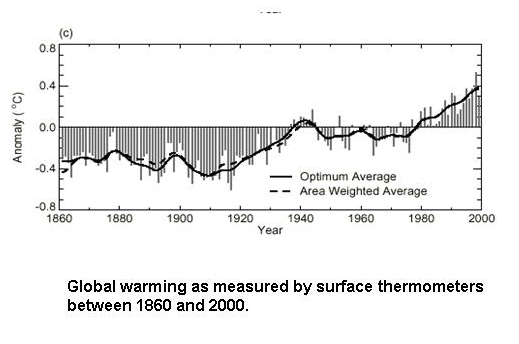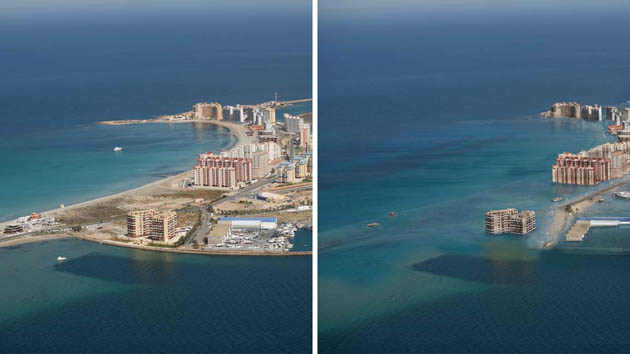

Overview
How did that happen?
Insects and plants reveal these rapid shifts.

Is it really happening? The evidence from atmospheric monitoring.
Summary of the current problem
One of many solutions: the necessities
Essays on the challenges:
Where can you learn more? A subject index of the problem.
Who is causing the rise in emissions?
When did all this become so important?
Indicators of abrupt climate change?
NOAA tracking site, Mauna Loa, Hawaii, data.
What we will lose from the living world due to climate changes?
Books:
Is climate change the same as global warming?
Impact on Birds
Climate sources of information
Why is it important to coastal areas and Florida?
What is being done?
What can you do to help?
Commentary
Science is increasingly compelling.
Hansen on immediacy of the problem.
Dangers of abrupt climate changes.
Past thousand years of climate records
Historical overview of the science.
§ Next §
Florida, Rhode Island, Delaware, New Jersey, the Carolinas and Louisiana are particularly vulnerable to storms, coastal erosion, flooding, wind damage, lightening, and sea level changes.
What can Florida's alert citizens do?
A projected rise of ten, thirty and fifty feet for sea level is displayed on this 1989 map of the state from Scientific American
Global Warming is costly because damage or delays from extreme or unpredictable weather events places a burden on insurance providers and commerce alike.
Bill McKibben, a writer for the New Yorker magazine, has long recognized the meaning of global warming and has created a national organization called 350.org to mobilize opposition to the favored status of oil, coal, gas and automotive industries.
The consequences of complacency are real and growing.

![]()
Here's where you come in. I need you to help make our leaders pay attention.
Spencer Weart | Gale Christianson | James Hansen | Contemporary
Let me tell you what you can do about these problems now:
National Action
Archer conclusion | Christianson | Gelbspan | Schmidt | Weart
§ clean cars -- the need for hybrid, electrical, and non-carbon fueled transportation.
§ clear skies -- a moderate Republican, corporate-backed attempt to reduce air pollution through only modest incentives for efficiency.
§ clean biofuels -- "cellulose" products like ethanol from switch grass and forestry & agricultural waste materials are best.
§ cogeneration -- retrieve waste heat and recover thermal air or water to make more electricity or heat buildings adjacent to thermal waste sources.
§ day lighting -- almost a fifth of all electricity used is to illuminate the darkness in buildings or streets.
§ develop wind, solar, and geothermal energy for electricity and heat
§ efficient motors, HVAC –heating, ventilation, and air conditioning– pumps and generators.
§ geothermal: active generation of electricity and passive thermal stabilization through use of heat pumps or ground cooling conduits.
Carbon is central to these three spheres.
2) Economy wide reductions in greenhouse gas [GHG] emissions
Cap & Trade -- means to limit (cap) pollutants and trade permits to emit pollution. This market-based strategy is usually needed to also promote energy efficiency incentives, standards, other measures. Cap and trade schemes have been criticized as "a selling of peoples' inalienable rights" to breathe clean air. The critics charge that principle sources of carbon emissions are so widespread and common in the community that a tax on carbon fuels would be a more fair and less disturbing means of curtailing inefficient use of electricity, or transportation fuels.
3) US has a history of overcoming challenges and using technical means to successfully convert obstacles into opportunities. Our failure to support the Kyoto Protocol (now expired) leaves us with a pressing need to act wisely and swiftly.
• US until 2009 was the largest producer of GHG or heat trapping gases, now we are second only to China with four times our population.
• US needs to be a leader in reducing our pollution to set an example.
• So we missed chances to reduce our emissions 7% below 1990 levels by 2010.
• Inability to overcome strong opposition in the US Senate & House broke in 2009, reappeared in 2011.
• The Kyoto Protocol is a very modest first step revealing our commitment but would have done little to stabilize emissions.
• The US currently is increasing its greenhouse gas emissions by over 2% annually.
• Around the world local communities are acting to reduce fuel use and thus their greenhouse gas emissions but neither voluntary actions or small steps affect the overall accumulation of heat trapping gases in the air.
![]()
Archer | Christianson | Gelbspan | James Hansen, 04 : Hansen 06 | McKibben| Musil | Schmidt | Weart | Wigley